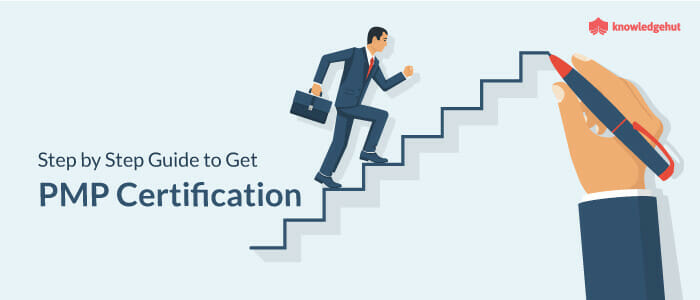
Top Resources for PMP Certification
The Project Management Professional (PMP) certification is a highly valued credential among the PM professionals. Earning this PMI certificate means that you have experience in the field of project management and you can put your valuable project management skills to add value to an organization.
To earn the PMP credential, you will have to pass the certification exam. Before you can take this examination, you must have contact hours in education. On top of this, the candidates must also have hours of experience leading projects. Without relevant knowledge and skills, an individual may consider earning an alternative certification. Precisely, he/she is allowed to take the Certified Associate in Project Management (CAPM) certificate. However, if you insist on earning the PMI PMP credential, you must meet the two requirements that were just mentioned.
Why Is the PMP Certification Highly Valued and Widely Recognized?
The PMI PMP certificate is not easy to earn. Most candidates fail to pass the exam on the first and second attempts. Some individuals give up along the way while some take the examination for even more than 3 times before passing. Compared to other certifications, it is not easy to pass the PMP exam. In fact, this is the main obstacle to earning this highly recognized credential.
For other certifications, you can simply pass the exams by reading the books and guides and memorizing the same. But the PMP test cannot be passed through this method. For you to pass the certification examination and earn the Project Management Professional credential, you must have a lot of resources and a good plan together with thorough preparation. The fact that the PMP test is difficult to pass makes it more valuable in the market.
Best Resources for the PMP Certification Exam
Before taking the PMP examination, you must prepare well for the same. You don’t just need to read books and memorize their content because doing that is not going to help you pass the exam. You should get all the resources that can help you study and prepare well for the certification test. However, this might not be possible if you do not know the right PMP resources that have been created by considering all the rules and requirements of the exam.The PMP resources are very easy to come by. You can do a simple Google search and you will have a long list of free and affordable resources. However, not all of them can help you pass the certification exam. For this reason, we found it wise to provide you with the top resources for the PMP test that will definitely help you pass it on the first attempt.
1 The PMBOK Guide – 5th Edition Get yourself the PMBOK Guide and make sure it is the 5th edition. This is actually the textbook for the Project Management Professional exam. Get this book early enough and read it at least twice. It contains terminologies and concepts of the PMP. Reading this book will help you understand the structure and main theme of the certification exam. While reading this guide, be sure to focus on its outputs, inputs and tools. It is recommended that you read and memorize the chat you will find on page 61 of this book. 2 PrepAway – PMP Practice Test Questions And Answers The PrepAway PMI PMP Handbook is an official application guide for the candidates who aspire to get the PMP certification. The guide has been published by the official publisher of the Project Management Professional exam. If you study this guide thoroughly, you will understand everything that the PMP certificate entails and how you can get certified. The book covers everything that you need to know for you to apply, sit for, and pass the PMP exam. You can get it on the PMI website. 3 ITTO Mind Map The ITTO Mind Map contains effective tools that can help candidates understand and memorize all difficult associations and concepts. Kim Synder developed this ITTO Mind Map when she was preparing for her PMP exam. By using mind maps, you will easily study and memorize the ITTO of the PMBOK. 4 The Step-by-Step PMP Certification and Study Guide Of course, you need the PMP Handbook. However, you will find it difficult to understand the official guide especially if you are a beginner for the certification because the handbook is written in an official language that is not easy to comprehend. A step-by-step guide will help you understand what is in the PMP Handbook easily. It also includes some of the most common questions about the PMP certification alongside simple answers to them. 5 PMP Exam Prep Book Written by Rita Mulcahy’s, the PMP Exam Prep book is among the best preparation books you can use as a resource for the PMP examination. The majority of PMP candidates use this guide as one of their top resources. Be sure to read this prep book thrice. Be keen to understand all the concepts that have been explained and your chances of success will greatly increase. It’s highly recommended that you try solving some questions whenever you complete reading every chapter. 6 Mock Exams Mock exams will give you an idea of how questions are set and how the candidates are supposed to provide answers. By going through the mock tests, you will be able to know what types of questions you should expect. Identify reputable resource centres and websites that offer and sell mock exams that are similar to what is contained in the real PMP exam. When you believe you have studied enough for the examination, you can take the mock exam questions to test your knowledge.Conclusion
Earning the PMP certification can be very beneficial for you and your employer. Apart from increasing your employability, it can also enhance your earning potential. But to obtain this PMI credential, you should get the resources mentioned above, and be sure to make good use of them.












